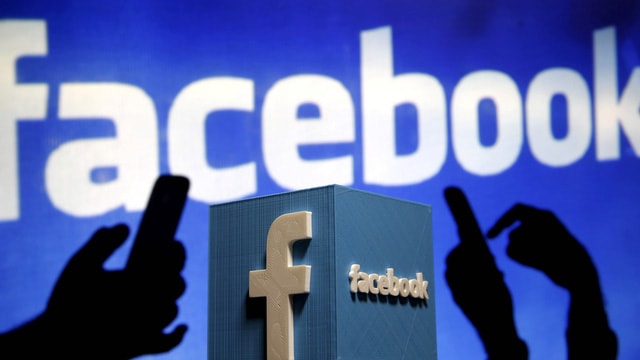'Gold mine' of network operators
While “big guys” like Twitter, Facebook and Google encourage users to share information, then quietly collect it and make a lot of money from it.
 |
| Facebook Company logo. Photo: Reuters |
Not all users of social networks or search engines on the Internet fully understand the value of the content they post and the clicks that express their opinions and attitudes while using service platforms on the Internet every day.
"Gold mine" from big data
Technology companies like Google, Facebook, Twitter, which operate and do business on big data platforms, always have access to huge user data stores (big data) collected from day to day, month to month. There is a lot of personal information that users "voluntarily donate", but there is also a lot of user information that is collected unintentionally by service platforms.
Have you ever seen those Facebook Like buttons and “Sign-in with Facebook” buttons on other websites? Yes, that’s how Facebook is tracking you all over the internet. And Facebook is also able to track posts and comments you’ve written but haven’t sent yet.
"As someone who writes a lot of applications in JavaScript and loves it, I find it sad that while I acknowledge the language's flexible interactivity, big data mining companies and advertisers are weaponizing it against us." American web designer and programmer Blake Watson,people who quit Facebook after 12 years of use |
Along with the information Facebook collects about you, there are also other entities that Facebook shares your data with. These include games and fun quizzes that often require you to log in to your Facebook account to participate.
The enthusiasm and willingness of users to use Google and social networking sites every day will provide these big data business giants with a huge database of information about your likes and dislikes, not to mention detailed information about each person's spending habits and web surfing habits...
All of that information effectively gives Facebook CEO Mark Zuckerberg and other tech leaders a wealth of personal information to use in the modern digital advertising industry. It also gives them an endless source of free content to “sew” ads alongside.
The New York Times once said in an article that the endless posts of users, photos of their travels and vacations everywhere, and the arguments and "exposés" on social networks have turned this platform into a truly top-notch "reality TV" show, attracting a large audience. And of course, you know who the profits go to.
The need for transparency
Recently, transparency in operations has been an issue that many Internet companies have mentioned, most recently in the investigation into allegations of Russian interference in the US election through social networks. Whether or not social networks interfere with specific user issues in all areas is still a question that is not easy to answer due to the opacity of those networks' policies on collecting and processing user information.
In a recent incident involving Twitter, after actress Rose McGowan took to Twitter to accuse media and entertainment industry leaders of being involved in covering up allegations of sexual harassment and abuse by film producer Harvey Weinstein, Twitter blocked the actress's account.
However, after the hashtag #WomenBoycottTwitter became popular, Twitter reactivated actress Rose McGowan's account, accompanied by an apology from Twitter CEO Jack Dorsey, saying that more transparency was needed in explaining how Twitter made such decisions.
Last month, Facebook founder Mark Zuckerberg also called for "transparency" when he announced that the company would share more information about who bought political ads on its platform. However, his commitment came after the company admitted that it had allowed Russian partners to buy ads that were accused of dividing the country and skewing the results of the 2016 US presidential election.
Likewise, Google has pledged to be "transparent" after advertisers were angered by its algorithm for placing their ads next to hateful, terrorist videos on YouTube.
Need to legalize Living in the current era of the "Internet of Things", it seems that people have very few options when it comes to protecting their privacy. Therefore, more than ever, policies on users' right to know about how technology companies handle their personal information online need to be specifically legislated as soon as possible./. |
According to TTO
| RELATED NEWS |
|---|

